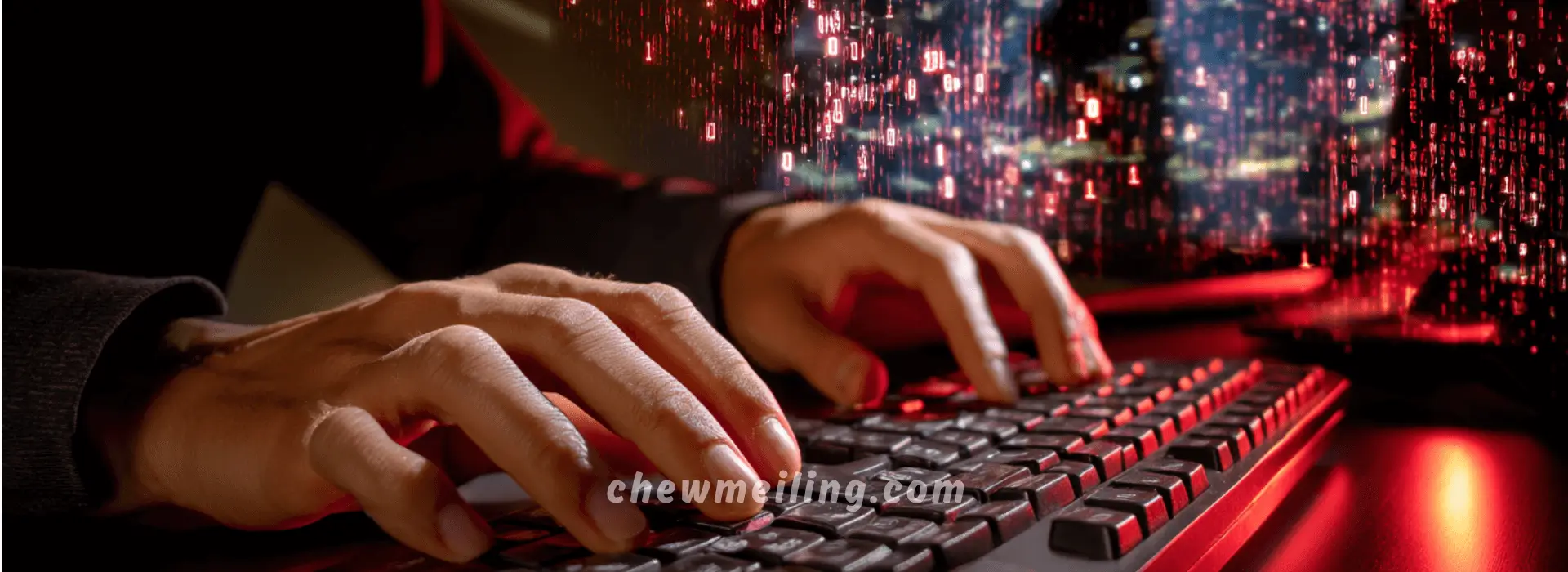Since last year, I have been updating and replacing my passwords with more complex versions. There are a few reasons that prompted me to do so. At work, I write about IT topics, including cybersecurity and password strength. Personally, I had an encounter when a website service provider used an insecure method to store usernames and passwords – meaning that they were able to see every username and password used on their website. Recently I also did a quick research on how quickly an 8-character password could be hacked (this is a common password length), and I’m shocked!
If you have short, easy-to-remember, and simple passwords, you could be leaving your personal and business information vulnerable. Enhancing your password security is simpler than you think. Below are tips on how you can protect yourself from digital threats.

How Hackers Crack Your Password
Most people assume that a password with a mix of uppercase, lowercase, numbers, and symbols is unbreakable. But the truth is, password-cracking technology has evolved, making shorter passwords—even complex ones—far easier to crack than you might expect.
Here’s how hackers do it:
- Brute Force Attacks – Hackers use automated tools and high-end computer chips to try every possible combination of characters. The shorter your password, the faster it falls.
- Dictionary Attacks – Instead of guessing randomly, hackers use a database of commonly used passwords, words, and phrases. If your password is something predictable like “Summer2024!” or “P@ssw0rd123,” you’re already at risk.
- Credential Stuffing – If your password has been leaked in a data breach, hackers will try it on multiple accounts, assuming you have reused it elsewhere. It is important not to reuse your passwords across different websites/accounts.
- Social Engineering – Sometimes, hackers don’t even need sophisticated tools. They manipulate people into giving up their passwords by posing as customer service agents, sending phishing emails, or exploiting personal details found online. Do not click on anything that is suspicious – either from email, SMSes, social media platforms, or messaging applications, or even advertisements. Always type in what you are looking for in search engines and verify that it is a legit website.
So, how long would it take to crack your password? Let’s break it down. ⬇️
How Long It Takes to Crack Your Password
You might think your password is strong, but have you ever considered how long it would actually take a hacker to break it? With advancements in computing power, passwords that once seemed uncrackable are now incredibly easy to hack.
Here’s a quick breakdown of how long it takes to crack different passwords using brute force attacks:
| Password Length | Only Lowercase Letters | Upper & Lowercase + Numbers | Upper & Lowercase + Numbers + Symbols |
|---|---|---|---|
| 8 characters | Instantly | A few minutes | A few hours |
| 10 characters | Seconds | A few hours | A few days |
| 12 characters | Minutes | A few days | A few months |
| 16 characters | Hours | Thousands of years | Millions of years |
| 18+ characters | Practically uncrackable | Practically uncrackable | Practically uncrackable |
Shocking, right? An 8-character password, even with numbers and symbols, can be cracked in under an hour with today’s hardware. Meanwhile, a 16+ character password could take millions of years to break—even with supercomputers!
The takeaway? Length and complexity matter! Make sure that all your crucial accounts have longer and more complex passwords.
But how do you balance security with convenience? Let’s find out. ⬇️
The Best Password Length and Complexity
Now that we know shorter passwords are easier to crack, the next question is: What is the ideal password length?
Cybersecurity experts recommend using at least 16 characters for strong security. The longer your password, the harder it is to crack—even for the most advanced hackers. But length alone isn’t enough; you also need complexity.
Here’s how to build an unbreakable password:
✔️ Use a mix of characters – Include uppercase and lowercase letters, numbers, and symbols. Example: Gm$8p!zQ%XyK72d#
✔️ Avoid common words or phrases – Hackers use dictionary attacks to crack passwords like "HelloWorld123", "LetMeIn", or "Summer2024!".
✔️ Don’t use predictable substitutions – Swapping “A” for “@” or “E” for “3” (e.g., “P@ssw0rd!”) won’t stop hackers—they know these tricks.
✔️ Consider a passphrase – A random mix of unrelated words (e.g., "CoffeeBananaRocket!27") is both secure and easy to remember.
✔️ Make it unique – Never reuse passwords across multiple sites. If one account is compromised, all your accounts are at risk.
Don’t overcomplicate the process and get NordPass to generate an ultra-safe password. Choose the length, type (using characters or words), capital letters, digits, and symbols. If you are feeling uncomfortable, you can also inject your own input into the already complicated passwords. The maximum characters is 64 – but I don’t think you want to be that extreme. I have passwords in 24-characters, and in today’s standard would take billion of years to crack via brute force. I think that should be good enough for now.

Passphrase vs. Random Strings: Which Is Better?
Many people struggle with remembering long, complex passwords. That’s why passphrases are an excellent alternative.
- Random String Password:
tG&8v@lPx!nKz6*#(Secure, but hard to remember) - Passphrase:
Mango!Purple$Train99(Just as secure, but easier to recall)
The key is randomness—a predictable passphrase like "ILoveMyDog2024" is still weak!
Now that we’ve covered password creation, let’s talk about how to keep your accounts truly secure. ⬇️
Practical Ways to Keep Your Accounts Secure
Having a strong password is just one piece of the security puzzle. To truly protect yourself, you need to layer your defenses with additional security measures. Here’s how:
1. Use a Password Manager
Trying to remember multiple 16+ character passwords is nearly impossible. A password manager like NordPass securely stores and auto-fills your passwords, so you don’t have to.
✔️ Generates strong, random passwords for you
✔️ Encrypts and stores passwords securely
✔️ Syncs across devices (computer & mobile) for convenience
Pro Tip: Never store passwords in your phone’s notes or a Word document – they are not encrypted and can be easily accessed by malware. A lot of people I know do this!
If you have your passwords scattered across multiple browsers and notes, you can easily import them into NordPass in a very secure way. Once you have done so, you can review and sort them into folders.

2. Enable Multi-Factor Authentication (MFA)
Even if a hacker gets your password, MFA (also called two-factor authentication or 2FA) can stop them from logging in. MFA requires an additional step, like:
✔️ A one-time code sent to your phone or email
✔️ A prompt from an authenticator app like Google Authenticator
✔️ A biometric scan (fingerprint, face ID)
Pro Tip: Authenticator apps are more secure than SMS codes, which can be intercepted.
3. Regularly Update Your Passwords
It may seem like a hassle to update your passwords, but it is one of the best methods to prevent unauthorized access.
- Change passwords at least once a year for critical accounts (banking, email, cloud storage).
- Immediately update passwords if you suspect a breach.
- Use a different password for each account to prevent hackers from accessing multiple services.
4. Never Share Your Passwords
- Don’t send passwords over email or messaging apps.
- If you must share access, use a password manager’s sharing feature instead of typing out the password. NordPass has this feature for a very small monthly fee.
- Be cautious of phishing attempts—hackers often impersonate companies to trick you into revealing your login details.
Strengthen Your Passwords Now!
In today’s world, a weak password is an open invitation for hackers. But with a few simple changes—using long, unique passwords, enabling MFA, and storing credentials securely—you can significantly reduce your risk of being hacked.
What You Can Do Right Now:
✔️ Use a password manager to generate and store long passwords
✔️ Enable multi-factor authentication on important accounts
✔️ Never reuse passwords, and avoid common phrases
Your password is your first line of defense – make it strong, make it unique, and make it unbreakable!


